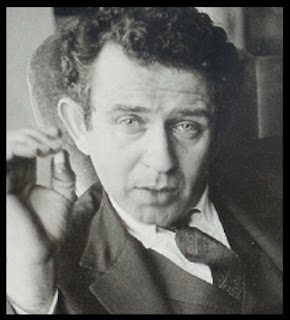
Review:
Other Colours: Essays and A Story, Orhan Pamuk.
It is more than a "grab bag" (William Grimes, writing a review for
The New York Times) and certainly more than "pen-and-ink doodles" (Charles McNair,
Paste magazine).
Los Angeles Times writer Richard Eder gets closer (at least not denigrating ephemera for being true to itself):
Pamuk sees in [Dostoevsky] someone bred to Western rationalism but with literary instincts that drew on his sense of affront at the West's blindness to the spirituality of the Russian people.
But he misses the point. Pamuk's feeling of kinship with the Russian Romantic author is due to a radical disconnect between what it means to be outside the castle, wanting to belong, but hating the self-satisfied airs of those who unthinkingly ape its residents:
Behind Dostoyevsky's great anger and hatred for the Westernizing liberals and the modernizers who propagated Fourier's determinist utpoianism in Russia during the 1860s was his fury at the way they basked in the limelight of their ideas, embracing success unabashedly and without question.
Pamuk talks of the "jealousy, anger and pride of a man who cannot make himself into a European".
The appeal to 'spirituality', which in D's case took the form of pan-Slavism (a form of nationalism within the Romantic trope of self-sufficiency) the
LA Times guy points to, is a mask. Nabokov's sneer is sensible here, like a Cheshire Cat in a slasher film.
But Pamuk is across all this. He talks ('Forward to
Tristram Shandy') of the
grand narrative that is "the logic behind all great legends, religions, and philosophies". In other words he speaks in a language comprehensible to any person with a Western background.
But there's more. Often he talks of the coffeeshops and barbershops of Istanbul which "served ... as places where news, legends, and rampant rumors, outright lies, and tales of wrath and resistance were fabricated and enriched to undermine the pronouncements of religious leaders and the state".
It is in this locus, within this trope, that Pamuk does what few people from a subaltern culture will normally do: admit that (a) the developmental level of their nation is backward (compared, for example, to that of the English-speaking world). Even if they do this, they will never admit that (b) democracy and pluralism are of potentially universal application. For many leaders (Japan, Malaysia) essentialism is the name of the game.
Refreshingly, he not only writes about D but also those from other subaltern nation states, of particular note being Junichiro Tanizaki. Pamuk referring to Tanizaki is a token of signal significance, placing the Japanese writer well above his competitors, such as Yukio Mishima (with whose nephew I worked in Tokyo).
The link between Istanbul and Europe, in the context referred to above, is Habermas, the German sociologist for whom 18th-century London stood as a high point in Western civilisation, and for whom the London coffeeshops served as arenas of discussion, commerce, and scandal-mongering. Just as in Istanbul today.
To mention 'grand narratives' in this context is to point more insistently to the German. In this sense,
Other Colours is a complex, rich and rewarding underground network of essential infrastructure referring to which allows a reader to understand the novels of this massively-talented writer, better.
We can gesture of course to
My Name Is Red, where (wrapped in the typically Western trope of a murder mystery) the essentialism of the 16th-century Ottoman court is exposed as a sham. The Venetian painters were right, Pamuk now tells us. Perspectival painting changed the world because it placed the human animal in a proper guise, no longer only comprehensible in relation to a supreme being.
Pamuk's breadth of knowledge puts most Western residents to shame.
I usually do not post a review of a book unless it's all read (or, if it's bad, when I get to the extremity of my patience) but in this case there's enough -- more than enough -- in the first 211 pages to warrant this post. The relevance of the book is striking, given such utterances as this, by an Afghani politician, Malalai Joya, talking with Australian journalist Glyn Strong (
Good Weekend, 3 November 2007):
I believe no nation can donate liberation to another nation. Democracy, human rights, women's rights are not something that someone gives to us. We must ourselves make sacrifices to achieve these values.
Here's Pamuk singing from the same score ('Where Is Europe?'):
No matter what language they speak in their homes ... a good many Istanbul intellectuals have read this work [Albert Sorel's L'Europe et la revolution francaise], but, as I know only too well, they did not read them as a French reader might, seeking connection with their memories and their own pasts, but rather searching within the pages for some sense of their future, of their European dreams.
Richard Stanton in his new book (
All News Is Local, McFarlane, 2007) says this, in precisely the same locus of relevance:
... democracy is ... an inductive or empirical model. It must by its nature be imagined historically through the long-run establishment of its institutions. It cannot be grounded in anything other than history.
 Review: Angel, dir Francois Ozon with Romola Garai (2007)
Review: Angel, dir Francois Ozon with Romola Garai (2007)











